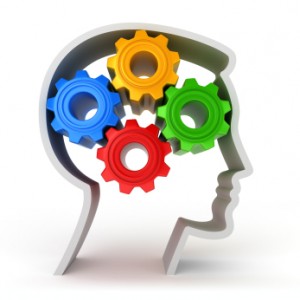Leading ADHD Clinic in NSW
Providing the most comprehensive assessment, diagnostic and therapy services for both children and adults across NSW & Australia.Far from our Centre?
Now offering Skype therapy for our out of area patientsUsing the latest scientifically validated tests and treatment protocols
-
Recent Posts
ADHD Assessments for Children
Our child ADHD assessments involve the following stages:
(1) Clinical intake interview:![]()
This is an interview conducted by telephone by our intake officer who will go through your child’s background, previously conducted assessments, and current symptoms of concern. This way we will be able to determine what type of assessment will be required and whether an ADHD assessment is appropriate (or whether a different type of assessment or broader assessment is required). Please note: To make an appointment for an assessment, a deposit of $150 is required to confirm that one of our clinicians will set aside a full morning for your child.![]()
(2) Standardised questionnaires:
Prior to attending your initial consultation we request that you complete 3 questionnaires pertaining to your child. (1) Background history questionnaire, (2) ADHD symptomatology questionnaire (including 12 other developmental disorders as well as social, emotional, behavioural and academic concerns), (3) an executive functioning questionnaire. To diagnose ADHD it is also important to ask one of your child’s teachers to also complete some of these questionnaires (2 & 3) in order to understand how your child is affected in the main environment where they are expected to sit and focus for extended periods. Often ratings can differ between home and school and it is important to understand what issues present in different settings in order to guide appropriate recommendations for intervention.
(3) Parent initial consultation:
Prior to us actually formally assessing your child we usually require an initial consultation with one or both parents in order for the clinician who is conducting the assessment to meet with the family, review the background questionnaires and discuss presenting concerns with the family. At this stage, depending on the background, the actual tests to be conducted will be planned.
(4) Formal neuropsychological/cognitive assessment:
Children will undergo the core neuropsychological module (see below). Feedback will then be given about the individuals results so far, and we may then recommend having further testing done in a specific area of difficulty. Sometimes the initial testing may suggest additional areas of difficulty that may need further exploration. Following each assessment feedback will be given regarding all the results to the child’s parent/s.
Core Neuropsychological Module: The assessment will begin with our Core

Neuropsychological Module, which takes approximately 3 hours for children. This includes the assessment of:
- General intellectual functioning (IQ test): Verbal comprehension, perceptual reasoning, working memory, processing speed
- Attention: Visual attention span, visual selective attention, visual sustained attention, divided attention (visual & auditory), auditory attention span, auditory sustained attention and switching attention.
- Executive functioning: planning, problem solving, utilising feedback, self-monitoring, task scheduling (8 years+ formal assessment)
- Academic achievement : word reading, spelling, mathematics screening
Extension Modules: We may then recommend that additional testing is conducted due to indications from the core module that there may be either (1) some non-attention based processing deficits masking themselves as an attention deficit or (2) some processing weaknesses that are co-occurring with the attention problems that need further examination (and possible additional treatment). We may assess in more depth any of the following:
- Academic achievement- Extensive: reading comprehension, written expression, phonological processing (segmentation, blending), listening comprehension, oral
expression - Memory: in depth verbal and nonverbal short-term & long-term memory
- Visual perception: visual discrimination, visual spatial skills, figure-ground relationships, form constancy, visuomotor integration
- Auditory processing
- Language and language-related processes: expressive and receptive language skills
- Motor skills: fine motor coordination, motor speed, visuomotor integration
(5) Feedback Session:
Following the assessment (either on the same day or at a time convenient to the family) we will then go through all the results, the diagnosis (where appropriate) and recommendations for intervention.
(6) Comprehensive Report:
We will provide the family with two reports: One for the family with recommendations appropriate to the home environment and one for the school with recommendations appropriate to the classroom environment.
As discussed at the time of the feedback as well as in the report, we will put together a comprehensive treatment program (as required) to address all of the issues your child is presenting with. We have an extensive list of treatment programs available to address not only ADHD symptomatology, but also other common social, emotional and behavioural issues. We are also happy to liaise with the school and any other health professionals working with your child.





